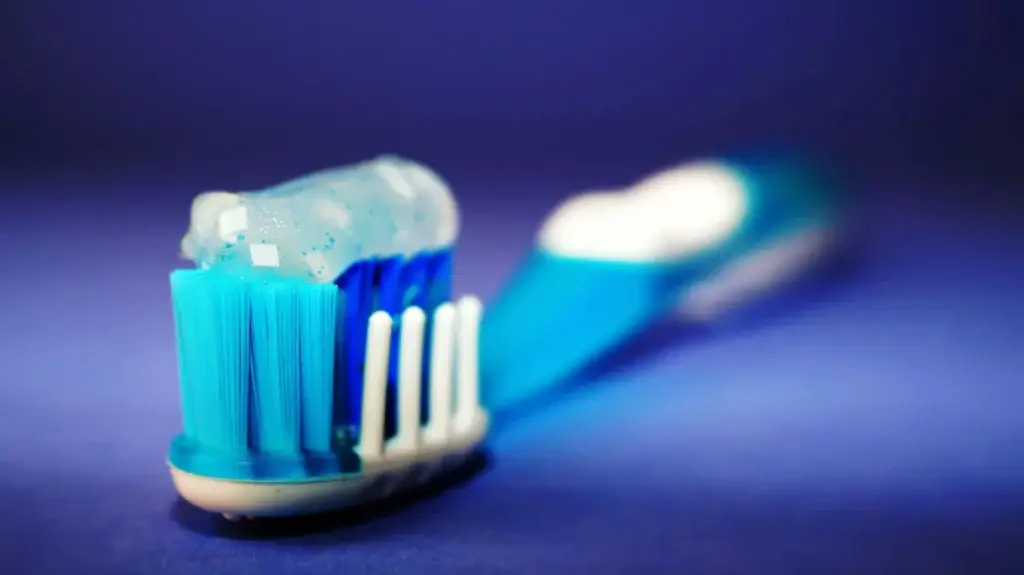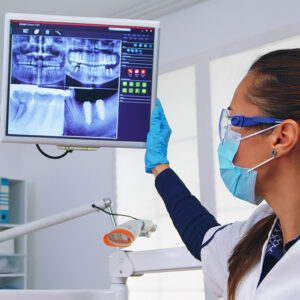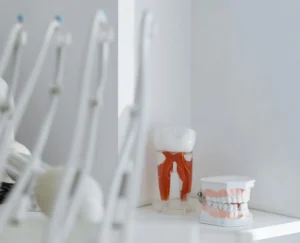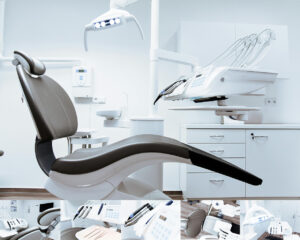Are you looking to maintain the brilliance of your porcelain veneers and ensure they last for years? You’ve made a significant investment in your smile, and it’s crucial to know how to care for these delicate enhancements. Porcelain veneers can transform your teeth, offering a radiant and natural look. However, without proper care, you risk diminishing their appearance and longevity.
In this article, we will delve into the essential tips for caring for your porcelain veneers. By following these guidelines, you can keep your smile looking its best and avoid common pitfalls. From proper cleaning techniques to dietary considerations and regular dental check-ups, we’ve got you covered.
Understanding how to care for your porcelain veneers is not just about aesthetics; it’s also about preserving your oral health. Veneers can last up to 15 years or more with the right maintenance, making them a worthwhile investment in your overall well-being. Let’s explore the best practices to help you enjoy your beautiful smile for many years to come.
So, what are the key steps to ensure your porcelain veneers remain in top condition? Keep reading to find out more about the importance of daily oral hygiene, foods and drinks to avoid, and how regular dental visits can make a difference.
Ready to learn more? Let’s dive into the first essential tip on how to care for your porcelain veneers.
Proper Cleaning Techniques for Porcelain Veneers
Maintaining good oral hygiene is essential for the longevity of porcelain veneers. By following the best cleaning practices, you can ensure that your veneers remain in excellent condition and continue to enhance your smile for years to come. In this section, we will cover the most effective cleaning techniques, including brushing, flossing, and using mouthwash.
Brushing Your Veneers
Brushing your teeth is a fundamental part of oral hygiene, and it is especially important when you have porcelain veneers. Here are some tips to consider:
- Use a soft-bristled toothbrush: Whether you prefer a manual or electric toothbrush, make sure it has soft bristles to avoid scratching the surface of your veneers.
- Choose non-abrasive toothpaste: Opt for a fluoride toothpaste that is gentle on your veneers. Avoid whitening toothpastes as they can be too abrasive.
- Brush twice a day: Brush your teeth for at least two minutes, twice a day, to remove plaque and prevent decay.
Recommended products include the Oral-B Pro 1000 Electric Toothbrush and Sensodyne Pronamel Toothpaste, both of which are gentle on veneers.
Flossing Around Veneers
Flossing is crucial for removing plaque and food particles from between your teeth and along the gum line. Here’s how to do it effectively:
- Use a gentle floss: Choose a floss that is designed to be gentle on your gums and veneers, such as Glide Pro-Health Comfort Plus Floss.
- Floss daily: Make it a habit to floss at least once a day to maintain optimal oral health.
- Be careful: Avoid snapping the floss into place, as this can damage your veneers. Instead, gently guide the floss between your teeth.
Using Mouthwash
Mouthwash can be a beneficial addition to your oral hygiene routine, helping to kill bacteria and freshen your breath. When selecting a mouthwash, consider the following:
- Choose an alcohol-free mouthwash: Alcohol can be too harsh and may weaken the bond of your veneers. Look for alcohol-free options like ACT Total Care Anticavity Fluoride Mouthwash.
- Rinse daily: Use mouthwash once a day, preferably after brushing and flossing, to ensure your mouth is thoroughly clean.
Regular Dental Check-Ups
Regular visits to your dentist are vital for maintaining the health of your veneers and overall oral hygiene. Here’s why:
- Professional cleanings: Your dentist can remove plaque and tartar buildup that regular brushing and flossing might miss.
- Early detection: Regular check-ups allow your dentist to spot any potential issues with your veneers early on, preventing more significant problems down the line.
Schedule a dental check-up every six months to keep your veneers and natural teeth in top condition.
By following these proper cleaning techniques, you can ensure that your porcelain veneers remain beautiful and functional for many years. For more tips on maintaining your veneers, explore other sections of our blog on Aleriom.
Dietary Considerations for Veneer Longevity
Your diet plays a significant role in the health of your porcelain veneers. By making mindful dietary choices, you can help ensure that your veneers remain in excellent condition for many years. In this section, we will discuss foods and drinks to avoid and those that are safe for your veneers.
Foods and Drinks to Avoid
Certain foods and beverages can stain or damage your porcelain veneers. To maintain their appearance, it’s best to avoid the following:
- Dark-colored beverages: Coffee, tea, red wine, and cola can stain your veneers over time. If you do consume these, use a straw to minimize contact with your teeth and rinse your mouth with water afterward.
- Acidic foods and drinks: Citrus fruits, vinegar, and soda can erode the bonding material of your veneers, making them more susceptible to damage.
- Hard foods: Nuts, hard candies, and ice can chip or crack your veneers. Be cautious and avoid using your teeth as tools.
- Sticky foods: Caramel, taffy, and other sticky candies can pull at the edges of your veneers, potentially causing them to become loose.
Foods and Drinks That Are Safe
While there are foods and drinks to avoid, many are safe and even beneficial for your veneers and overall oral health:
- Water: Drinking water helps wash away food particles and bacteria, keeping your veneers clean and your mouth healthy.
- Dairy products: Milk, cheese, and yogurt are rich in calcium and phosphates, which strengthen your teeth and veneers.
- Fruits and vegetables: Crunchy fruits and vegetables like apples, carrots, and celery help clean your teeth naturally and stimulate saliva production, which protects your veneers.
- Lean proteins: Chicken, fish, and tofu provide essential nutrients without the risk of staining or damaging your veneers.
The Benefits of a Balanced Diet
Maintaining a balanced diet is crucial for your overall oral health and the longevity of your porcelain veneers. A diet rich in vitamins and minerals supports healthy gums and teeth, providing a stable foundation for your veneers. Here are some key benefits:
- Stronger teeth and gums: Nutrients like calcium, vitamin D, and phosphorus are essential for maintaining strong teeth and healthy gums, which support your veneers.
- Reduced risk of decay: A balanced diet low in sugar and high in fiber helps prevent tooth decay and gum disease, protecting the integrity of your veneers.
- Improved oral hygiene: Eating a variety of nutrient-dense foods promotes saliva production, which helps cleanse your mouth and reduce plaque buildup.
By making mindful dietary choices and maintaining a balanced diet, you can ensure the longevity and appearance of your porcelain veneers. For more tips on how to care for your veneers, explore other sections of our blog on Aleriom.
Regular Dental Check-Ups and Maintenance
Regular dental visits are essential for maintaining your porcelain veneers. These visits not only help in keeping your veneers in top condition but also ensure your overall oral health remains optimal. Let’s delve into the importance of professional cleanings and check-ups.
When it comes to how to care for porcelain veneers, regular dental check-ups play a pivotal role. Your dentist can detect early signs of potential issues and provide the necessary maintenance to keep your veneers looking their best.
Why Regular Dental Visits Are Crucial
Regular dental visits are vital for several reasons:
- Professional Cleanings: Even with diligent brushing and flossing, plaque and tartar can build up in hard-to-reach areas. Professional cleanings remove these deposits, preventing decay and gum disease.
- Early Detection: Dentists can identify early signs of wear or damage to your veneers. Addressing these issues promptly can prevent more significant problems down the line.
- Overall Oral Health: Regular check-ups ensure that your natural teeth and gums remain healthy, providing a stable foundation for your veneers.
How Often Should You Visit the Dentist?
It’s generally recommended to visit your dentist every six months. However, depending on your specific needs, your dentist might suggest a different frequency. Regular visits help in:
- Maintaining Veneers: Your dentist can polish your veneers and check for any signs of damage or wear.
- Preventing Issues: Regular check-ups can prevent minor issues from becoming major problems.
- Professional Advice: Your dentist can provide personalized advice on the best practices for caring for your veneers.
Common Concerns About Dental Visits
Here are some common questions and answers about dental visits for veneer maintenance:
- Q: Will professional cleanings damage my veneers?
- A: No, professional cleanings are safe for veneers. Dentists use non-abrasive tools and techniques to clean your teeth without damaging the veneers.
- Q: What should I do if my veneer feels loose?
- A: If a veneer feels loose, schedule an appointment with your dentist immediately. They can assess the situation and re-bond the veneer if necessary.
- Q: Can I whiten my veneers?
- A: Porcelain veneers do not respond to whitening treatments. If you want to maintain their brightness, avoid staining foods and drinks, and follow your dentist’s cleaning recommendations.
By adhering to a regular dental check-up schedule and following your dentist’s advice, you can ensure that your porcelain veneers remain in excellent condition for years to come. For more tips on maintaining your veneers, explore other sections of our blog on Aleriom.
Maintaining Your Porcelain Veneers for a Lasting Smile
Proper care and maintenance are crucial for the longevity of your porcelain veneers. By following these tips, you can keep your smile looking beautiful for years to come.
To recap, maintaining good oral hygiene is the foundation of veneer care. Always use a soft-bristled toothbrush and non-abrasive toothpaste to avoid damaging the surface of your veneers. Floss daily with a gentle floss to remove plaque and food particles from between your teeth. Additionally, using an alcohol-free mouthwash can help kill bacteria and freshen your breath without weakening the bond of your veneers.
Dietary choices also play a significant role in veneer longevity. Avoiding dark-colored beverages like coffee, tea, and red wine, as well as acidic and hard foods, can prevent staining and damage. Instead, opt for water, dairy products, crunchy fruits and vegetables, and lean proteins, which are safe for your veneers and beneficial for your overall oral health.
Regular dental check-ups are essential for maintaining your veneers and overall oral health. Schedule visits every six months for professional cleanings and early detection of potential issues. Your dentist can provide personalized advice and ensure your veneers remain in top condition.
- Key Takeaways:
- Brush twice daily with a soft-bristled toothbrush and non-abrasive toothpaste.
- Floss daily and use an alcohol-free mouthwash.
- Avoid staining and hard foods; choose veneer-friendly options.
- Schedule regular dental check-ups every six months.
By adhering to these guidelines, you can enjoy a radiant and lasting smile. Don’t forget to schedule your next dental check-up with us at Aleriom and continue exploring our blog for more tips on maintaining your porcelain veneers.








